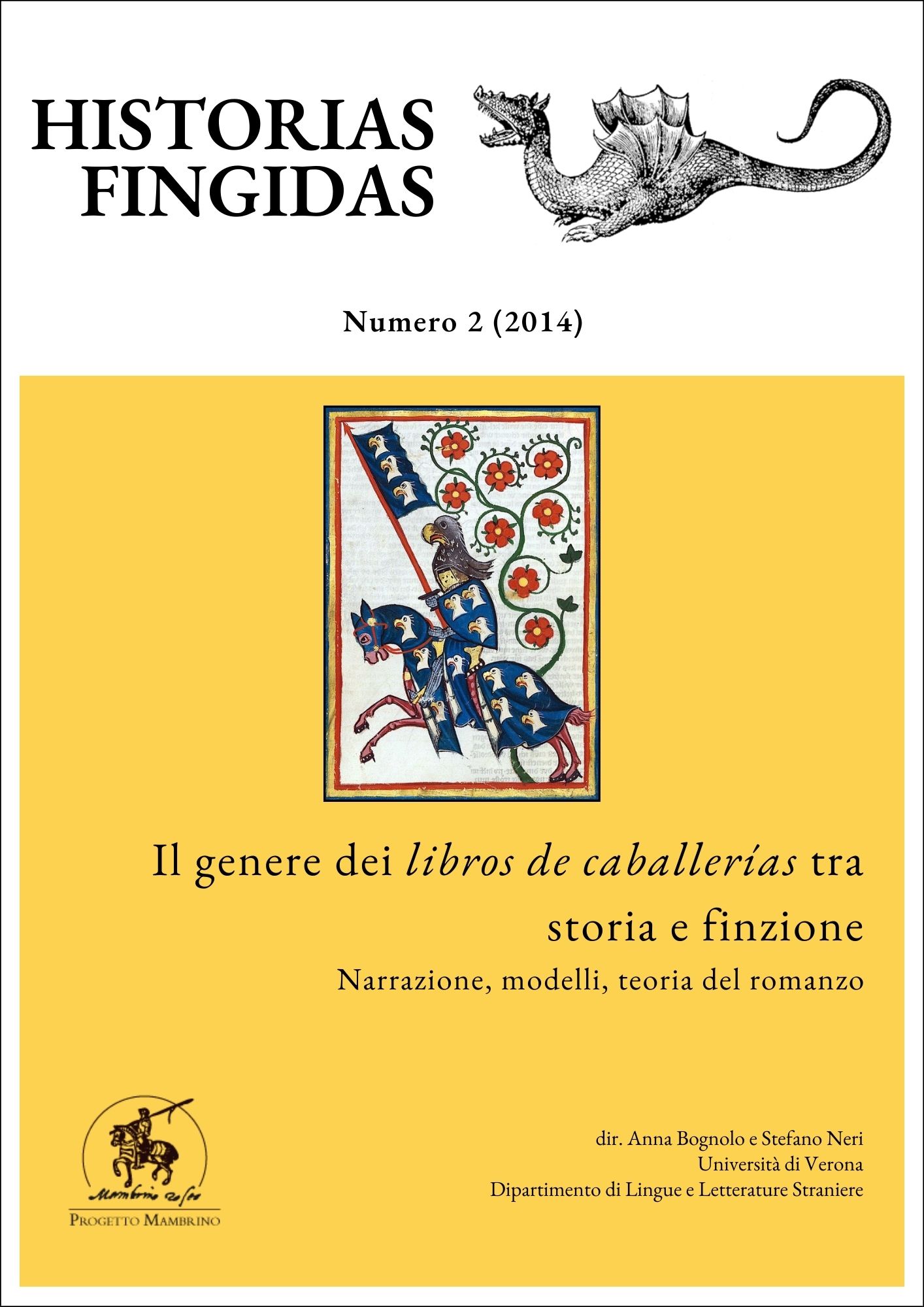Pietro Lauro’s Polendo: an italian heir to Palmerín
DOI:
https://doi.org/10.13136/2284-2667/21Keywords:
Pietro Lauro, Polendo, Palmerín de Olivia, Palmerin cycle, romances of chivalry, literary relations between Italy and SpainAbstract
The Historia delle gloriose imprese di Polendo, figliuolo di Palmerino d’Oliva, e di Pompide figliuolo di don Duardo re d’Inghilterra (Venice, 1566), written by the Italian author Pietro Lauro, belongs to the Italian series of Palmerín de Olivia. This book is the continuation of the first two books of the original Spanish series, Palmerín de Olivia and Primaleón. Pietro Lauro’s book presents many innovative elements compared to the tradition of the novel of chivalry, not only for its content, but also for its narrative structure. In the Historia di Polendo we can notice some continuities, as well as some dissonances with the previous books. This demonstrates the novelty and originality of the author.
La Historia delle gloriose imprese di Polendo, figliuolo di Palmerino d’Oliva, e di Pompide figliuolo di don Duardo re d’Inghilterra (Venecia, 1566), escrita por Pietro Lauro, pertenece al ciclo italiano de Palmerín de Olivia y es una continuación los dos primeros libros del ciclo original español, Palmerín de Olivia y Primaleón. El libro de Pietro Lauro presenta algunos elementos novedosos en relación a la tradición del libro de caballerías, no sólo por lo que atañe a los contenidos, sino también por la estructura de la narración. En la Historia di Polendo destacan tanto elementos de continuidad como de divergencia con respecto a los libros anteriores. Esto demuestra la novedad y la originalidad del autor.
Downloads
Published
Issue
Section
License

This work is licensed under a Creative Commons Attribution-NonCommercial 4.0 International License.
Authors must attend to the following conditions:- Authors will mantain the copyright of their work and leave to the journal first publishing rights, simultaneously licensed by a Creative Common License - Attribution - No Commercial Use that permits other researchers to share the work indicating the intellectual property of the author and the first publishing in this journal not for commercial use.
- Authors can adhere to other license agreements not exclusive to the distribution of the published version of their work (for example: include it in an institutional archive or publish it in a monografic book), with the agreement of indicating that the first publishing belongs to this journal.
- Authors can disseminate their work (for example in institutional repositories or their personal website) before and during the submission procedure, as it can lead to advantageous exchanges and citations of the work (see also, The Effect of Open Access).

